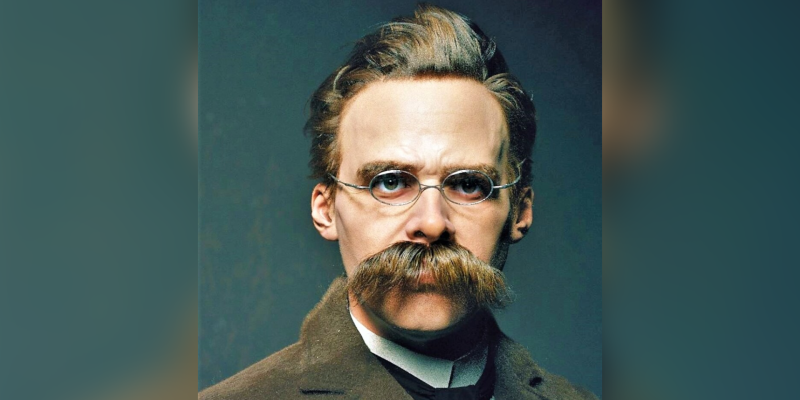We explain what nihilism is, its origin and main characteristics.

What is nihilism?
Nihilism is a philosophical position that believes that life has no meaning in itself. This does not mean that life has no value or is despised, but that its value is what is given to it.
Nihilists say that there is no predetermined, determining or deterministic meaning of life. Life is what you do, not what you say you should do.
The word “nihilism” comes from nihilwhich in Latin means “nothing.” It is a philosophical concept that denies the idea of origin or transcendence of meaning. Nihilistic positions are those that say that life has no predetermined meaning.
Nihilism is a way of emphasizing human freedom and responsibility over predetermined moral forms.
See also: Existentialism
Origin of nihilism
The term “nihilism” was first used at the end of the 18th century, in a letter from Friedrich Jacobi to Johann Fitche.
Its use became popular thanks to the Russian writer Iván Turgenev, who, in his novel Parents and children (1862), said that nihilism is a political position similar to anarchism: opposed to all authority and all forms of faith.
Furthermore, there are forms of nihilism in the Cynic school of Antisthenes, in the 4th century BC. C. The cynics opposed the morals of the time and practiced “anaideia” in protest, which is shameless and provocative behavior. Many centuries later, Russian artists took up the same practice in opposition to the Tsarist Russia of Alexander II.
In the philosophical field, nihilism is linked to the work of two great German philosophers: Friedrich Nietzsche and Martin Heidegger. Each one used the term in their own way, although Heidegger was inspired by Nietzschean nihilism.
Nietzsche spoke of nihilism to refer to the history of metaphysics, which he characterized as the history of nihilistic thought. This means that it is the story of nothing itself, which also forgot that in its origin there was nothing.
This served him, for example, to criticize the Christian religion, to which he predicted the “death of God.” That's why, Nietszche says that Western thought is decadent: forgets or denies having emerged from this same “nothing” that gave rise to it.
For its part, Heidegger described nihilism as a state in which being is a mere value, a thing. Heidegger saw this denial as the construction of a new starting point to be able to think about being in its authenticity.
Positive and negative nihilism
In Nietzsche's conception of nihilism, two types or classes of nihilism appear: negative and positive.
- negative nihilism. It is what designates the cultural history of the West as a process of decadence that began with Socrates and extended until the Judeo-Christian era. This is nihilism understood as the fulfillment of the metaphysical essence of the West.
- positive nihilism. It is the Nietzschean genealogical method. This consists of the process by which false metaphysical-Christian values are unmasked and the death of God is discovered. This lack of values is positive because it poses a destruction of values, which allows the creation of new values.
Nihilism, arts and politics
Many artists used nihilism for their works, whether films, books or works of art.
Writers like Anton Chekhov and Ayn Rand wrote from a nihilistic point of view. The same can be said of the work of Albert Camus, who adopted nihilism to his own point of view generally called “absurdism.”
On the cinema side, many contemporary films address nihilism in one way or another. Some examples are Matrix, fight club, The Big Lebowski and the works of Andrei Tarkovsky, master of Russian cinema.
Politics, on the other hand, saw in nihilism a way to found certain types of anarchism. Both positions (nihilism and anarchism) are skeptical of social, hierarchical or religious values, as well as the idea of foundation or origin. It is assumed that Russian nihilism was even the cradle of many Russian anarchist groups, both artists and political activists.
References
- Volpi, F. (2005). Nihilism. Byblos Publishing House.
- Laiseca, L. (2001). European nihilism: the nihilism of morality and the anti-Christian tragedy in Nietzche. Byblos Publishing House.





